Thursday 25 June 2020
#eat / drink #restaurants #best x y
The best X arrosticini in Rome. Where to eat Abruzzese "rustelle".
It is known that arrosticini are not a dish of Roman cuisine at all.
But, it will be that with Abruzzo we have in common the pastoral tradition and the sheep are not lacking, it is not rare to find them in the taverns.
We recommend that you eat them only with your hands, pulling the meat with your teeth. And to refuse roast chicken, pork or any other animal other than a sheep.
In the link list and map of places where you can eat arrosticini (obviously partial list, we await your collaboration for additions and changes).
Something similar (for size and cooking method, not in flavor) it is possible to find it:
- in the Japanese "yakitori"
- in the Chinese "chuanr"
- in the Indonesian Thai and Malaysian "satays"
- in the South African "sosiates"
- in the Greek "kalamaki" (souvlaki)
- in the Filipino "isaws"
- in the Peruvian "anticuchos"
- in the Spanish "pinchos morunos"
- in the more local Sicilian "stigghiole".
But, it will be that with Abruzzo we have in common the pastoral tradition and the sheep are not lacking, it is not rare to find them in the taverns.
They are mutton skewers (sheep between 6 months and two years), cooked on the grill, using a characteristic channel-shaped brazier (called fornacella, furnacella, canala or canalina).
We recommend that you eat them only with your hands, pulling the meat with your teeth. And to refuse roast chicken, pork or any other animal other than a sheep.
In the link list and map of places where you can eat arrosticini (obviously partial list, we await your collaboration for additions and changes).
Something similar (for size and cooking method, not in flavor) it is possible to find it:
- in the Japanese "yakitori"
- in the Chinese "chuanr"
- in the Indonesian Thai and Malaysian "satays"
- in the South African "sosiates"
- in the Greek "kalamaki" (souvlaki)
- in the Filipino "isaws"
- in the Peruvian "anticuchos"
- in the Spanish "pinchos morunos"
- in the more local Sicilian "stigghiole".

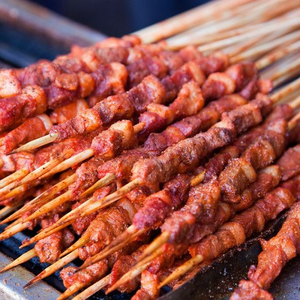
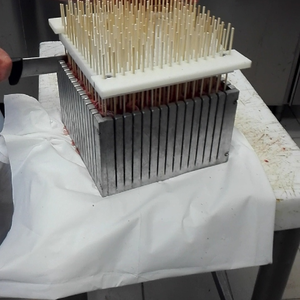
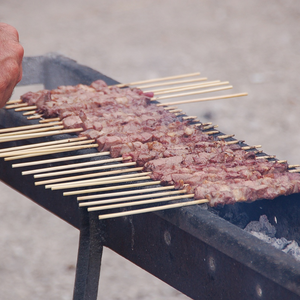
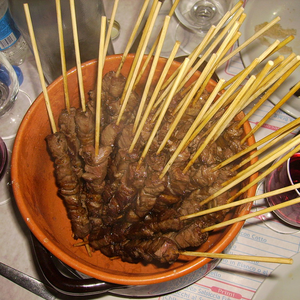

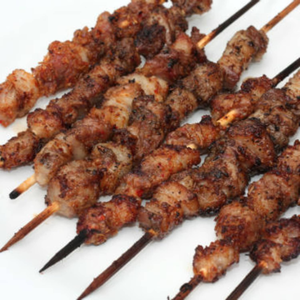
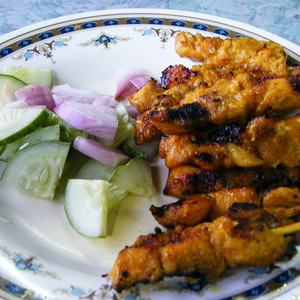
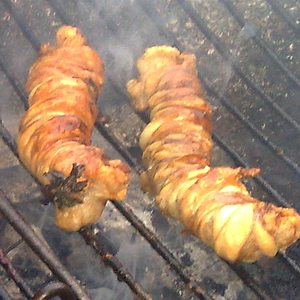
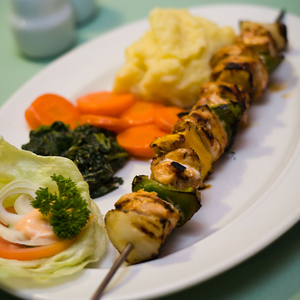
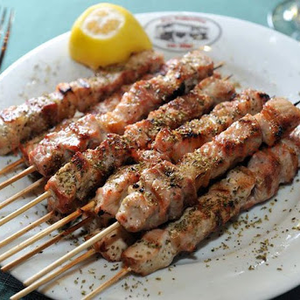
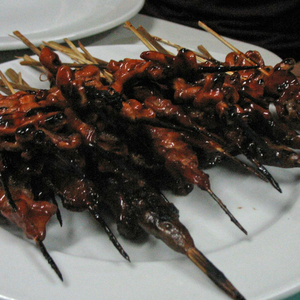
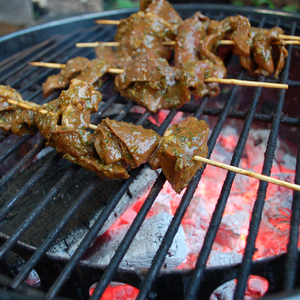
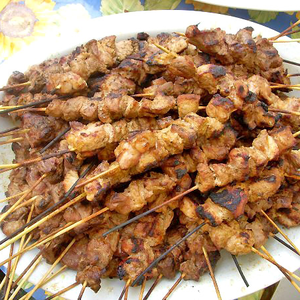
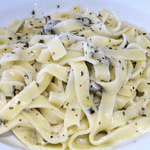 The true origins of the legendary Fettuccine Alfredo.
The true origins of the legendary Fettuccine Alfredo.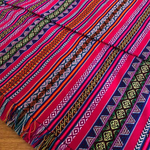 The X best Peruvian restaurants in Rome. Where to eat cheviche according to the tradition of an underrated cuisine.
The X best Peruvian restaurants in Rome. Where to eat cheviche according to the tradition of an underrated cuisine. On the ugliness and uselessness of restaurant websites. Dedicated to restaurateurs (Roman and not).
On the ugliness and uselessness of restaurant websites. Dedicated to restaurateurs (Roman and not). The X best cod fillets in Rome. Where to eat the legendary fried fish.
The X best cod fillets in Rome. Where to eat the legendary fried fish. [EVENT CANCELED] Sicilian festival in Piazza San Giovanni Bosco. From 22 to 25 October 2020.
[EVENT CANCELED] Sicilian festival in Piazza San Giovanni Bosco. From 22 to 25 October 2020. Street Food in Rome. Three appointments in September 2020.
Street Food in Rome. Three appointments in September 2020.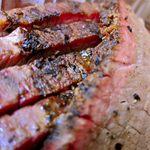 The best X smoked BBQ. Where to eat American smoked meat (in Rome and in Italy).
The best X smoked BBQ. Where to eat American smoked meat (in Rome and in Italy). DOCG and DOC wines from the province of Rome (and a bit of history).
DOCG and DOC wines from the province of Rome (and a bit of history). The X best "vaccinara" oxtails of Rome. Where to eat the queen of the fifth quarter.
The X best "vaccinara" oxtails of Rome. Where to eat the queen of the fifth quarter. The best X Y in Rome. That is where to eat Y.
The best X Y in Rome. That is where to eat Y. Small guide to restaurants in Rome: Asian cuisine
Small guide to restaurants in Rome: Asian cuisine Farmers' markets reopen: list, map and timetables.
Farmers' markets reopen: list, map and timetables.